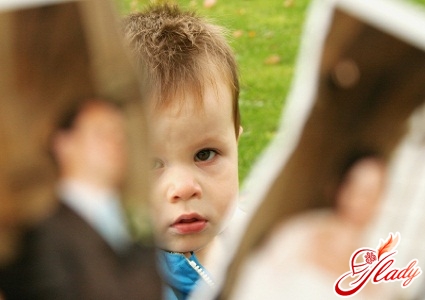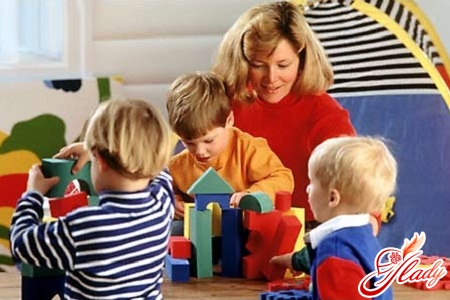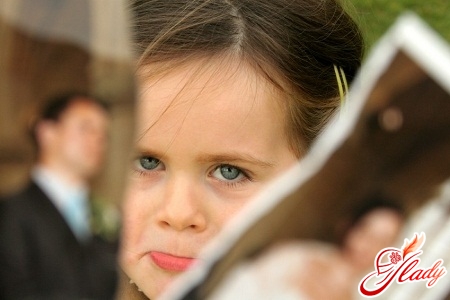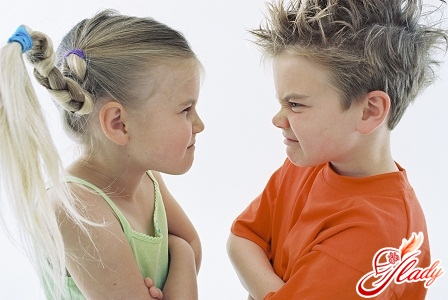 Surely, everyone remembers the words of the old song “Peoplemeet, people fall in love, get married." But, unfortunately, many married couples, having lived together for some time, get divorced. If a married couple has no children, problems usually do not arise. But if there is a child in the family, the situation becomes much more complicated: the rights of the child during the divorce of parents must be taken into account first of all. Many parents mistakenly believe that the main thing they should take care of is compliance with legal norms and property rights. However, this aspect is far from the only one that needs to be paid attention to. Of course, the housing issue, alimony - this is a very important issue, since the material well-being of the child depends on it. However, very often adults get too carried away with solving the issue of the material rights of the child during the divorce of parents, completely forgetting about the moral side. Sometimes parents, during a divorce, go so deep into their problems and experiences, in sorting out the relationship with their ex-half, that they completely forget about their children. Someone believes that the child is too young and does not understand anything yet. And someone, on the contrary, believes that the child is already old enough, understands everything and does not need explanations. However, such a position is fundamentally wrong and can lead to serious consequences and psychological trauma in the child. Very often, such a shock experienced in childhood leaves its negative imprint on the child's entire subsequent life. It does not matter at all how old your child is. In any case, you will not be able to hide from him that negative atmosphere in the house. Do not forget about the feelings of children after their parents' divorce. They, as a rule, experience no less, and sometimes much more shock than adults. Especially in the case when the parents cannot peacefully agree on who the child will live with, or the child's desire does not coincide with the desire of the parents. This article contains information that gives complete answers to the most frequently asked questions that a woman who is faced with the issue of divorce may have.
Surely, everyone remembers the words of the old song “Peoplemeet, people fall in love, get married." But, unfortunately, many married couples, having lived together for some time, get divorced. If a married couple has no children, problems usually do not arise. But if there is a child in the family, the situation becomes much more complicated: the rights of the child during the divorce of parents must be taken into account first of all. Many parents mistakenly believe that the main thing they should take care of is compliance with legal norms and property rights. However, this aspect is far from the only one that needs to be paid attention to. Of course, the housing issue, alimony - this is a very important issue, since the material well-being of the child depends on it. However, very often adults get too carried away with solving the issue of the material rights of the child during the divorce of parents, completely forgetting about the moral side. Sometimes parents, during a divorce, go so deep into their problems and experiences, in sorting out the relationship with their ex-half, that they completely forget about their children. Someone believes that the child is too young and does not understand anything yet. And someone, on the contrary, believes that the child is already old enough, understands everything and does not need explanations. However, such a position is fundamentally wrong and can lead to serious consequences and psychological trauma in the child. Very often, such a shock experienced in childhood leaves its negative imprint on the child's entire subsequent life. It does not matter at all how old your child is. In any case, you will not be able to hide from him that negative atmosphere in the house. Do not forget about the feelings of children after their parents' divorce. They, as a rule, experience no less, and sometimes much more shock than adults. Especially in the case when the parents cannot peacefully agree on who the child will live with, or the child's desire does not coincide with the desire of the parents. This article contains information that gives complete answers to the most frequently asked questions that a woman who is faced with the issue of divorce may have.
The legal rights of the child after the parents' divorce
Unfortunately, very often parents who have adopteda decision on divorce, to come to a peaceful decision that would suit both parties, does not work out and, insisting on their own, one of the parties tries to infringe on the rights of the child. In this case, it is necessary to remember that the legal rights of the child after the divorce of parents are protected by the federal law "On the Protection of the Rights of the Child", as well as the Family Code of the Russian Federation. In the event that people who want to dissolve the marriage have common children under 18 years of age, the divorce process is possible only through the court. As a rule, the marriage is dissolved only after three months and only if the spouses have no mutual claims, and the rights of the children are not infringed. Exceptions to the general rules are those situations when:
- One of the spouses is declared a judicial decision as missing.
- One of the spouses is recognized as legally incompetent.
- One of the spouses is sentenced to serving a sentence in a correctional institution for a term of more than three years.
In all the above cases, the lawIt is possible to dissolve a marriage in the civil registry office. If the parents cannot agree peacefully on who the child will live with after the divorce, this issue must be resolved in court. The judge makes a decision based on the evidence he has about the parents' income, the living conditions for the child, the possibility of education and many other factors. Recently, there have been more and more cases where, by court order, children remain with their fathers after their parents' divorce if they can provide more favorable conditions for living and raising them. That is why a woman should take care of a sufficient evidence base in advance. In some families, disputes arise regarding the child's communication not only with the other parent, but also with other relatives: grandmothers, sisters, grandfathers. This issue can also be resolved in court. If a woman believes that such communication has a negative impact on her child, she should take care to present the court with compelling evidence of her case. It is also important to remember that a child has property rights after the parents' divorce. Every child has the right to have personal items. In addition, both parents must provide money for the child's maintenance, even if one of the parents has been deprived of parental rights. Deprivation of parental rights does not provide for release from parental responsibilities. Remember that a child who has not reached the age of majority has the right of ownership to all income received by him, to property received by inheritance or as a gift. All the funds that a child receives in the form of pensions, alimony, social benefits, are at the full disposal of the parent with whom the minor child lives, and can only be spent on the needs of the child. The rights of a minor child to housing are protected by the Housing Code. The child has the same rights as all people registered in the residential premises. If the apartment is privatized and the child has his/her share, after the parents' divorce the right of ownership is retained by the child. The parents can agree on the amount of alimony themselves, after which they must conclude an agreement with a notary. If they fail to come to a mutual agreement, then you will also need the help of the court. However, first compare the amount offered to you and the amount due by law:
- If there is one minor child in the family, the amount of alimony will be 25% of the size of the official source of income.
- For two children this amount will be equal to 33%.
- In the same case, if there are three or more minors in the family, alimony will be 50% of the official source of income.
It is also worth remembering that ifthe child is under three years old, the mother also has the right to receive alimony for the time she is on maternity leave. Also, in some cases, the court may oblige the parent to pay a fixed amount, regardless of the amount of income. Typically, this practice is used in the following cases:
- The parent does not have a permanent job or stable earnings.
- Wages are charged in a foreign form.
- It is not possible to establish the amount of income.
If the parent evades paying child support, you will also have to go to court with a claim for debt collection.
Divorce of parents and the fate of children
 As mentioned above, unfortunately,behind the adult passions boiling around what is happening, parents often forget about such a question as the divorce of parents and the fate of children. However, before solving all the organizational issues related to divorce, parents need to take care of the moral state of the children. As numerous studies by psychologists show, children of different age groups experience divorce in completely different ways, and they are tormented by completely different fears. Each age group has its own vision of the problem and gives a different assessment of what is happening. Divorce is the most severe psychological stress, which has a very negative effect on the child's psyche, for children under 6 years old. Firstly, the main condition for psychological comfort and harmonious spiritual development is stability. When parents divorce, there can be no talk of any stability. The world in the eyes of the child turns upside down. Dad does not come home anymore, and mom is silent almost all the time, or cries. Due to his age, the child cannot adequately assess the events happening around him, he gets lost, scared and withdraws into himself. In addition, children aged three to six years almost always experience a strong sense of guilt for what is happening. This is explained by the fact that the child, who is unable to understand the true reason for the divorce, projects the blame on himself, believing that dad left because of his bad behavior. This is why it is so important for the mother to regularly instill in the child that this position is wrong and the child is absolutely not guilty. The child's father should do the same. Older children, aged 7 - 8 years, already understand that they are not the reason for their father leaving the family. However, they, of course, cannot fully understand the situation yet, so they are angry with their father. Children aged 10 - 11 years also experience a burning resentment, but already against both parents, they feel betrayed and abandoned. It is often beyond the power of the parent to cope with this situation on their own. However, turning a blind eye and ignoring the presence of the problem is in no way possible, as this will only worsen the situation. In this case, parents should contact a child psychologist who will help the child cope with their confused feelings and tell them how to survive their parents' divorce. Teenagers are already able to more or less adequately assess the current situation. However, we must not forget that although they are adults, they are still children who still need the support of adults. Teenagers can begin to actively protest against their parents' divorce. Skipping classes, smoking, even leaving home - these, at first glance, acts of disobedience are nothing more than an act of protest against the situation in the family.
As mentioned above, unfortunately,behind the adult passions boiling around what is happening, parents often forget about such a question as the divorce of parents and the fate of children. However, before solving all the organizational issues related to divorce, parents need to take care of the moral state of the children. As numerous studies by psychologists show, children of different age groups experience divorce in completely different ways, and they are tormented by completely different fears. Each age group has its own vision of the problem and gives a different assessment of what is happening. Divorce is the most severe psychological stress, which has a very negative effect on the child's psyche, for children under 6 years old. Firstly, the main condition for psychological comfort and harmonious spiritual development is stability. When parents divorce, there can be no talk of any stability. The world in the eyes of the child turns upside down. Dad does not come home anymore, and mom is silent almost all the time, or cries. Due to his age, the child cannot adequately assess the events happening around him, he gets lost, scared and withdraws into himself. In addition, children aged three to six years almost always experience a strong sense of guilt for what is happening. This is explained by the fact that the child, who is unable to understand the true reason for the divorce, projects the blame on himself, believing that dad left because of his bad behavior. This is why it is so important for the mother to regularly instill in the child that this position is wrong and the child is absolutely not guilty. The child's father should do the same. Older children, aged 7 - 8 years, already understand that they are not the reason for their father leaving the family. However, they, of course, cannot fully understand the situation yet, so they are angry with their father. Children aged 10 - 11 years also experience a burning resentment, but already against both parents, they feel betrayed and abandoned. It is often beyond the power of the parent to cope with this situation on their own. However, turning a blind eye and ignoring the presence of the problem is in no way possible, as this will only worsen the situation. In this case, parents should contact a child psychologist who will help the child cope with their confused feelings and tell them how to survive their parents' divorce. Teenagers are already able to more or less adequately assess the current situation. However, we must not forget that although they are adults, they are still children who still need the support of adults. Teenagers can begin to actively protest against their parents' divorce. Skipping classes, smoking, even leaving home - these, at first glance, acts of disobedience are nothing more than an act of protest against the situation in the family.
Pitfalls of divorce. How to minimize the "sharp corners"?
So, the divorce is over and the child is startingnew life. What should parents expect? The hardest thing for a child is that parents, exhausted by the divorce process, begin to pay a little less attention to him than usual. It is difficult for a child to understand that such changes are just a consequence of the emotional fatigue of the parents. The child begins to think that no one needs him: neither the mother who stayed with him, nor the father who left. This situation can worsen if the mother, who previously did not work, goes back to work. The second, also very common pitfall, is that many parents, having separated, engage in a kind of rivalry for the love and attention of the baby. This struggle is most often conducted in two ways:
- The parent tries in every possible way to convince the child that,that he is the best and loves him more. Often in the course are the most treacherous tricks and shaking up "dirty laundry." Mom can talk about the many adventures of his father. The father, in turn, accuses his mother of the most unseemly acts. Parents, pursuing their own selfish goal, often, alas, forget about the most important thing - about the child's state of mind. Whatever it was, the child loves both parents and a similar situation seriously injures his psyche.
- The second, the most favored by men, wayto win the attention of the child is a huge amount of gifts and a fascinating pastime: circuses, zoos, attractions, concerts. Most often, for all these decorations, the parent simply tries to hide the fear of being rejected by the child. And sometimes it says that the parent is not able to spend time with the baby simply and naturally while remaining himself. Of course, all children, without exception, just love all kinds of gifts and entertainment. However, for them the opportunity is no less important and valuable.
Another huge mistake of parents, negativelyaffecting the child's psyche, this is an attempt to make a spy out of the child or assign him the functions of a liaison. In such a situation, the child is constantly cross-examined by both parents, who are trying to find out details of the personal life of the former second half from the child, or convey their wishes to each other through the child. Of course, at first the child may feel proud of his own importance, but this feeling will very soon be replaced by completely different, much less rosy ones. During this period of life, children often do not understand how to survive the divorce of their parents, so they simply withdraw into themselves. The child may, as already mentioned above, experience extreme anger at both parents, and even refuse to meet. In no case should you scold him for this or force him - this can lead to very sad consequences. Very soon the situation will normalize. It often happens that from the moment of the parents' divorce, the childhood of children, especially teenagers, ends. And the fault for this is the wrong line of behavior of the parents. For example, a mother often turns her daughter into a friend with whom she can share absolutely all her worries and doubts. However, we should not forget that the teenager's psyche is not yet ready for such stress and such revelations can cause irreparable harm. The same applies to housekeeping. You should not shift the washing, cleaning, cooking and looking after younger people to the child. Of course, the child should help you, but within reason. Of course, the mother will have more worries after the divorce, but it is still necessary to allow the child to remain a child. Below are some recommendations on how a child can survive the divorce of his parents. After all, no matter how acute the problem of the child's perception of divorce is, parents can always ease the problem, or, on the contrary, aggravate it. During a divorce, in no case should the child be deprived of the opportunity to closely communicate with both parents. In no case should the child be forced to choose only one parent and set him against the other. Women are especially often guilty of this, who instill in their children that their communication with their father will be a real betrayal towards her. For the child, this is a very painful situation. We must not forget that children are much more loyal and tend to forgive their parents for many mistakes, which is why children love both parents approximately equally. Many fathers have the mistaken opinion that they have ceased to play an important role in the child's life and their visits are not really needed. However, in fact, communication with the father is very important for the child and helps with faster emotional rehabilitation and is a good way for the child to more easily survive the divorce of his parents. Unfortunately, over time, the number of visits decreases. But the father must remember that children perceive this fact very painfully, regardless of how much time has passed since the divorce: a month or several years.
How to explain to a child the divorce of parents?
 Many parents, not knowing how to explainпредстоящий развод, предпочитают скрывать этот факт до последнего. Однако внезапная новость станет для ребёнка настоящим потрясением. Необходимо рассказать ребёнку о том, что папа с мамой больше не будут жить вместе заранее, до вашего реального развода. Таким образом, вы позволите ребёнку осознать реальность происходящего, свыкнуться с этой мысли и частично справиться с первым потрясением, которое неизбежно вызовет данная новость. У ребёнка будет время поговорить и с папой, и с мамой, задать вопросы, которые тревожат его. Детям требуется гораздо больше времен для принятия и осознания ситуации, чем взрослым людям. Это следует иметь в виду взрослым, когда они будут принимать решение, как объяснить ребенку развод родителей. Наверняка ребёнок будет снова и снова возвращаться к болезненной для него теме, пытаясь понять, почему возникла такая ситуация и как ему вести себя дальше. Будьте готовы к тому, что подобные вопросы будут возникать с пугающей регулярностью. Ни в коем случае нельзя ругать ребёнка за навязчивость, так как это может значительно усугубить ситуацию. Детскими психологами замечено то, что те дети, которые заранее знали о предстоящем разводе, переносили его относительно безболезненно. А вот те дети, для которых развод стал громом среди ясного неба, очень часто сталкиваются с серьёзными психологическими проблемами, вплоть до нервных срывов. Также очень важно следить, чтобы объяснения ребёнок получил на максимально доступном ему уровне. Объяснения должны соответствовать возрасту ребёнка. Не перегружайте излишней информацией маленького ребёнка, а вот подростку уже можно дать гораздо больше информации. Главная задача родителей – найти «золотую середину». Вряд ли объяснение типа « мама с папой больше не могут жить вместе» устроит подростка, но и давать излишне много информации, порочащей репутацию одного из родителей, также не стоит. Также не стоит забывать, что со временем, по мере роста ребёнка, вам неоднократно придётся возвращаться к вопросу о причине развода. Ведь объяснения, полученные десятилетним ребёнком, вряд ли удовлетворят естественный интерес четырнадцатилетнего подростка. Обязательно постарайтесь донести до сознания ребёнка то, что ваш развод никак не отразится на взаимоотношениях с ним. Обязательно расскажите о том, что ребёнок сможет общаться и с мамой, и с папой. Однако стоит обратить внимание отцов: если на самом деле вы не планируете регулярного общения с детьми, ни в коем случае не обещайте им этого. Гораздо разумнее будет сразу объяснить им, что часто видеться у вас не получится, но это не значит, что вы забыли о ребёнке. Вы должны убедить его в том, что он навсегда останется любимым и нужным. Самое главное, на что следует обратить внимание, обдумывая, как вы объясните ребенку развод родителей, это на необходимость убедить ребёнка, что его вины в произошедшем нет. Также постарайтесь объяснить ребёнку, что он никак не может помешать разводу либо повлиять на ход событий. Дети часто до последнего сохраняют надежду на то, что им удастся предотвратить развод. Не стоит подпитывать детские иллюзии, так как это может стать тяжёлой психологической травмой. Разумеется, распад семьи – это одно из самых тяжёлых событий в судьбе каждого человека. Но ни в коем случае нельзя забывать о разводе родителей и судьбе детей. Ведь развод – это дело двоих только до того, как у пары родится ребёнок. После этого – это трагедия всей семьи. Самое главное в подобной ситуации – это не растеряться и не паниковать, а постараться сохранить спокойствие и трезвость мышления, так как в истерическом состоянии очень сложно принять верное решение и действовать правильно. Не стесняйтесь обращаться за помощью квалифицированных специалистов, если она вам действительно нужна: юристы, психологи всегда с готовностью подскажут вам, как поступить в той или иной ситуации. Советуем почитать:
Many parents, not knowing how to explainпредстоящий развод, предпочитают скрывать этот факт до последнего. Однако внезапная новость станет для ребёнка настоящим потрясением. Необходимо рассказать ребёнку о том, что папа с мамой больше не будут жить вместе заранее, до вашего реального развода. Таким образом, вы позволите ребёнку осознать реальность происходящего, свыкнуться с этой мысли и частично справиться с первым потрясением, которое неизбежно вызовет данная новость. У ребёнка будет время поговорить и с папой, и с мамой, задать вопросы, которые тревожат его. Детям требуется гораздо больше времен для принятия и осознания ситуации, чем взрослым людям. Это следует иметь в виду взрослым, когда они будут принимать решение, как объяснить ребенку развод родителей. Наверняка ребёнок будет снова и снова возвращаться к болезненной для него теме, пытаясь понять, почему возникла такая ситуация и как ему вести себя дальше. Будьте готовы к тому, что подобные вопросы будут возникать с пугающей регулярностью. Ни в коем случае нельзя ругать ребёнка за навязчивость, так как это может значительно усугубить ситуацию. Детскими психологами замечено то, что те дети, которые заранее знали о предстоящем разводе, переносили его относительно безболезненно. А вот те дети, для которых развод стал громом среди ясного неба, очень часто сталкиваются с серьёзными психологическими проблемами, вплоть до нервных срывов. Также очень важно следить, чтобы объяснения ребёнок получил на максимально доступном ему уровне. Объяснения должны соответствовать возрасту ребёнка. Не перегружайте излишней информацией маленького ребёнка, а вот подростку уже можно дать гораздо больше информации. Главная задача родителей – найти «золотую середину». Вряд ли объяснение типа « мама с папой больше не могут жить вместе» устроит подростка, но и давать излишне много информации, порочащей репутацию одного из родителей, также не стоит. Также не стоит забывать, что со временем, по мере роста ребёнка, вам неоднократно придётся возвращаться к вопросу о причине развода. Ведь объяснения, полученные десятилетним ребёнком, вряд ли удовлетворят естественный интерес четырнадцатилетнего подростка. Обязательно постарайтесь донести до сознания ребёнка то, что ваш развод никак не отразится на взаимоотношениях с ним. Обязательно расскажите о том, что ребёнок сможет общаться и с мамой, и с папой. Однако стоит обратить внимание отцов: если на самом деле вы не планируете регулярного общения с детьми, ни в коем случае не обещайте им этого. Гораздо разумнее будет сразу объяснить им, что часто видеться у вас не получится, но это не значит, что вы забыли о ребёнке. Вы должны убедить его в том, что он навсегда останется любимым и нужным. Самое главное, на что следует обратить внимание, обдумывая, как вы объясните ребенку развод родителей, это на необходимость убедить ребёнка, что его вины в произошедшем нет. Также постарайтесь объяснить ребёнку, что он никак не может помешать разводу либо повлиять на ход событий. Дети часто до последнего сохраняют надежду на то, что им удастся предотвратить развод. Не стоит подпитывать детские иллюзии, так как это может стать тяжёлой психологической травмой. Разумеется, распад семьи – это одно из самых тяжёлых событий в судьбе каждого человека. Но ни в коем случае нельзя забывать о разводе родителей и судьбе детей. Ведь развод – это дело двоих только до того, как у пары родится ребёнок. После этого – это трагедия всей семьи. Самое главное в подобной ситуации – это не растеряться и не паниковать, а постараться сохранить спокойствие и трезвость мышления, так как в истерическом состоянии очень сложно принять верное решение и действовать правильно. Не стесняйтесь обращаться за помощью квалифицированных специалистов, если она вам действительно нужна: юристы, психологи всегда с готовностью подскажут вам, как поступить в той или иной ситуации. Советуем почитать:








